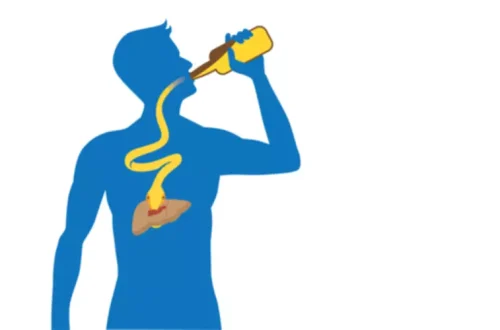Is He or She an Addict First? Or a Narcissist First?
The altered state of mind induced by alcohol can further impair empathy, increase self-centeredness, and intensify manipulative tendencies. This can lead to a cycle of destructive behaviors, strained relationships, and an inability to take responsibility for one’s actions. People who think that they may have an addiction or a personality disorder should consult a doctor or mental health professional for advice and treatment. People who are experiencing problems with alcohol, drugs, or sex should contact a doctor or mental health professional. A doctor can offer help and treatment to those dealing with addiction, which may involve suggesting lifestyle changes or rehabilitation clinics. This study concluded that people with grandiose narcissism are more able to evaluate and recognize their problems with alcohol than people with vulnerable narcissism.
What are some common traits of individuals with both narcissism and alcohol addiction?
Treatment programs for vulnerable narcissists might focus on negative expectations while grandiose narcissists might need to focus more on recognition of problems. Future research should evaluate potential mechanisms driving these associations, such as mediators that might explain associations or moderators that might strengthen relationships found in this study. For example, perhaps types of drinking motives (e.g., conformity or coping) differentially mediate the relationship between narcissism subtypes and alcohol outcomes.
- Studies have found that individuals with narcissistic traits are more likely to engage in substance abuse and other addictive behaviors.
- Pathways Recovery Center uses evidence-based treatments to help clients with narcissism and alcoholism.
- However, they do return to the addictive behavior later as a way to demonstrate they ultimately have power and control over the drug of choice.
- People may be unable to prevent certain factors, such as genetic reasons, that increase the risk of AUD and NPD.
Substance abuse can be used as a defense or a coping mechanism.
Supporting a loved one struggling with narcissism and alcoholism can be difficult, but it is important to approach the situation with compassion and understanding. Supporting them with emotional support and encouraging them to seek professional help can be effective ways to help them overcome their addiction and manage their narcissistic tendencies. It’s worth noting that not all narcissists exhibit the same behaviors. Some may have high self-esteem and a healthy sense of self-worth, while others may exhibit extreme narcissism and a lack of empathy for others. Additionally, there are different types of narcissism, including vulnerable narcissism and grandiose narcissism. A narcissistic personality is characterized by grandiosity, self-absorption, and a lack of empathy.
Does Alcohol Make Narcissistic Behavior Worse?

The narcissistic enabler minimizes all signs of addiction and fosters feelings of superiority over others. The addiction enabler is likewise blind to symptoms of addiction, therefore, justifying financially supporting it. Stage two of Erik Eriksons Psychosocial Development which occurs between 18 months and three years old has shame as the negative outcome. Not all narcissists or addicts have trauma during these years, but it can be a good place to begin. Because there is a strong concurrence, about 50% of narcissists are addicts of some sort.
- An individual with NPD will display a consistent pattern of narcissistic behavior.
- Future research should evaluate potential mechanisms driving these associations, such as mediators that might explain associations or moderators that might strengthen relationships found in this study.
- Above all, if a narcissist ever admits to an addiction or a destructive behavior yet continues engaging in the activity, it should be seen as a call for attention.
Rate of Recovery With Mental Illness

Some individuals have both Narcissistic Personality Disorder and an active addiction. Coping with someone with a dual diagnosis can be more difficult than if that person suffered from only narcissism and alcoholism narcissism or untreated alcoholism. These treatments can help individuals achieve sobriety, promote personal growth, and establish healthier ways of relating to oneself and others.
- In other words, someone with vindictive narcissism may tend to feel extremely and permanently hurt by someone else’s rejection, boundaries, or contradictory behavior.
- Being in a relationship with someone with narcissistic personality can be challenging.
- The situation elevates and can become much worse when dealing with a narcissistic alcohol or drug addict.
- Enabling behavior can perpetuate the cycle of alcoholism and narcissism by shielding the alcoholic narcissist from the natural consequences of their actions.
- You can take them with you to your next appointment to talk with your healthcare provider.
- In the legends, Narcissus, the son of a god, fell in love with his own reflection and died pining for the “perfection” he saw within that reflection.
- Remember that you cannot change your partner’s behavior or force them to seek help.
- However, not everyone with narcissism has an addiction and vice versa.
- However, narcissistic traits do not inherently indicate the presence of a mental health disorder.
Integrative care is essential to ensure clients with narcissism and alcoholism have the guidance to manage their co-occurring mental health disorders. Grandiose narcissism was also a significant predictor of a positive alcohol problem evaluation, over and above alcohol use, social desirability and vulnerable narcissism. In other words, grandiose narcissists are more likely to regard the alcohol problems that they may encounter as good. This may be because of the social benefits they bring (e.g., holding one’s liquor might be seen as a good quality and doing risky things while intoxicated could be seen as “cool” in some circles).
Diagnosing alcoholism and NPD

Simine Vazire and David Funder decided to look into what caused these self-defeating behaviors, asking was it a function of conscious cognitive and affective processes or something else. They honed in on impulsivity and conducted a meta-analysis of the existing literature. If so, that seems to make the kinship ties of narcissism and addiction even more evident.
What to Do If Someone You Know Has Both Alcoholic & Narcissistic Traits
Dry-drunk individuals may also exhibit narcissistic behaviors as they struggle to cope with unresolved emotional issues and challenges. When discussing the relationship between narcissism and alcoholism, it’s helpful to divide narcissists into two distinct groups. While helping your partner, refrain from enabling their addictive and narcissistic behaviors. This includes not making excuses for their actions, covering up for their mistakes, or taking responsibility for their problems.

